Spatial reasoning Normal Worksheets for Ages 4-7
5 filtered results
-
From - To
Develop your child's spatial intelligence with our engaging Spatial Reasoning Worksheets designed for ages 4-7. At Kids Academy, our carefully crafted sheets help young minds enhance their understanding of shapes, positions, and movements in space. Through fun exercises, kids will learn to visualize and manipulate objects, fostering crucial math and problem-solving skills. Tailored to match their developmental stages, these worksheets promote critical thinking and boost confidence, setting a strong foundation for future learning. Explore our educator-approved resources today and watch your child’s spatial abilities soar!
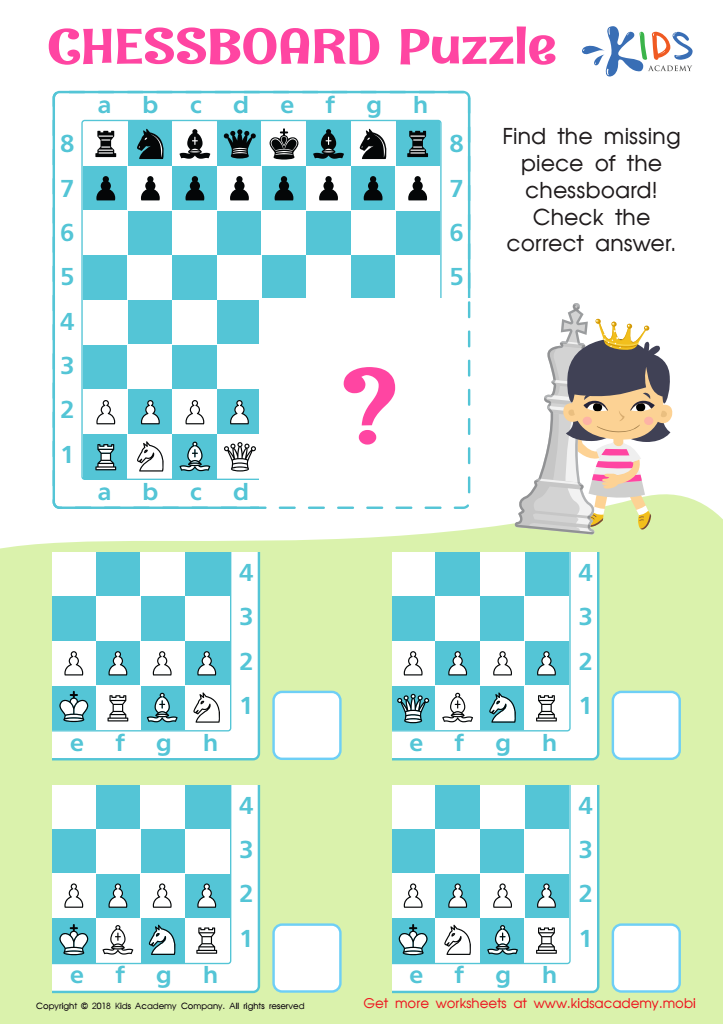

Chessboard Puzzle Worksheet
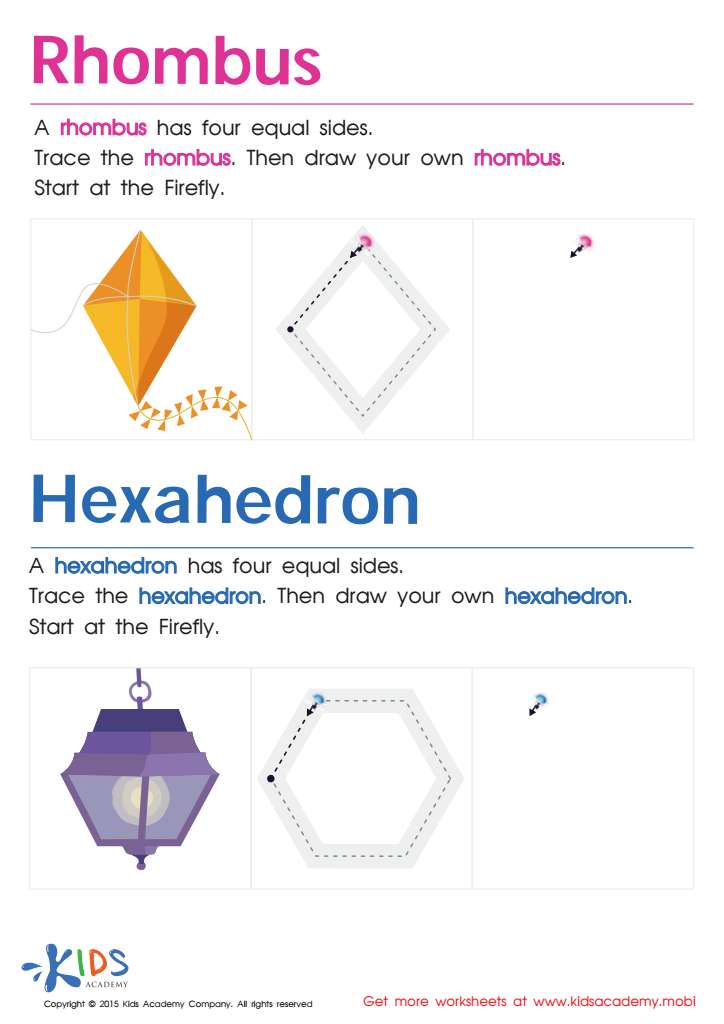

Draw a Rhombus And a Hexahedron Printable
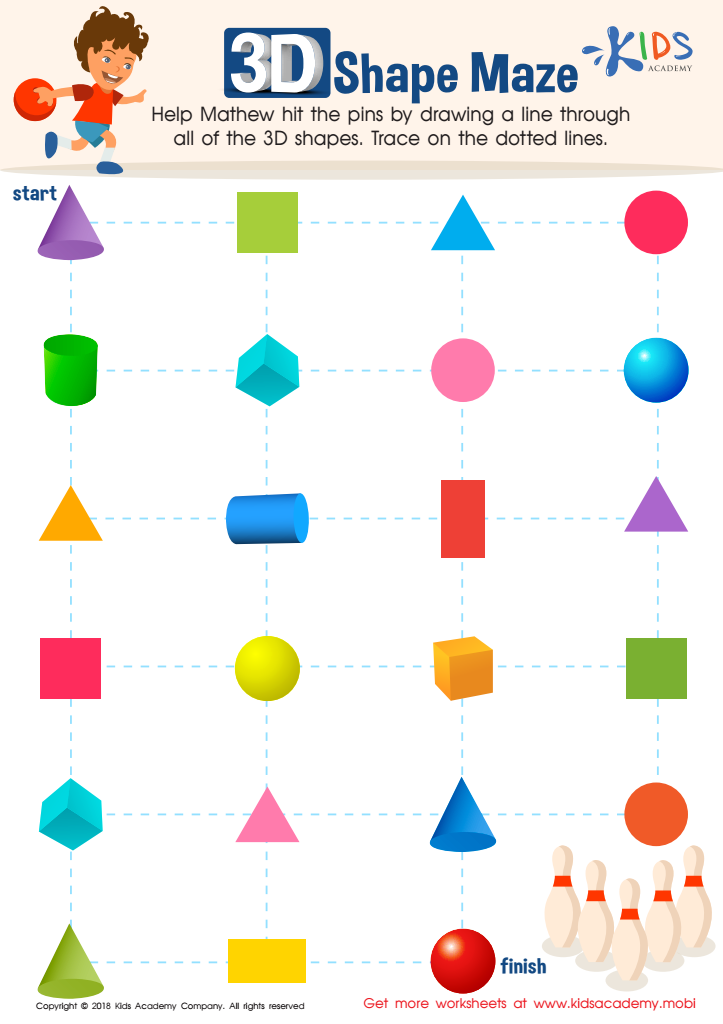

Shapes Maze Geometry Worksheet
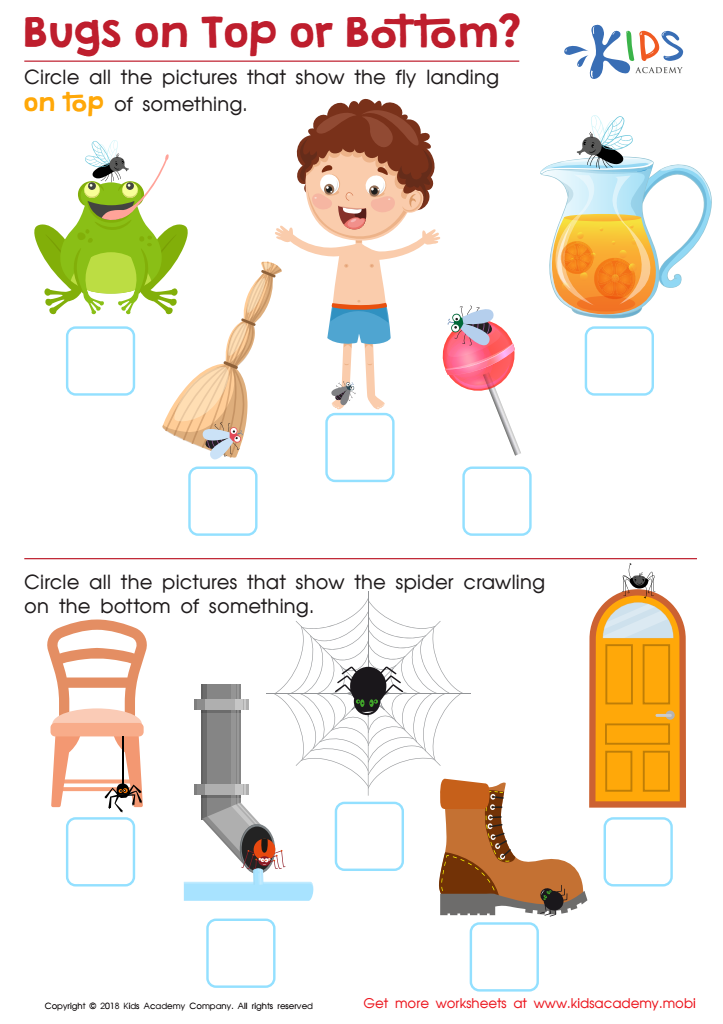

Bugs on Top or Bottom? Worksheet
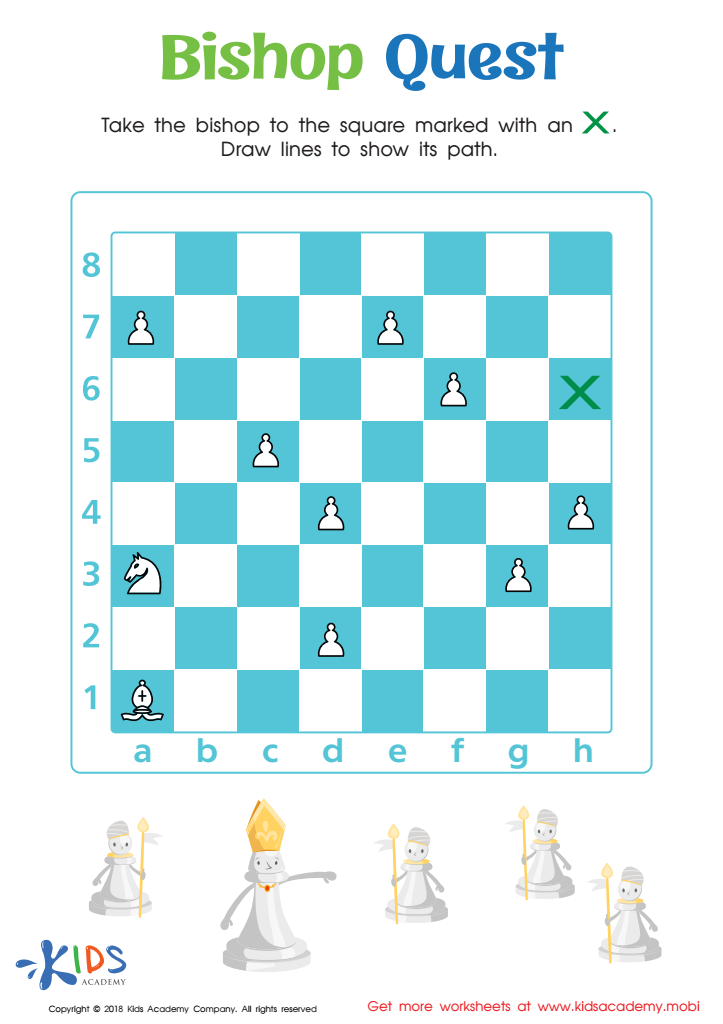

Bishop Quest Worksheet
Spatial reasoning is a critical cognitive skill that refers to the ability to understand, visualize, and manipulate objects and shapes in space. For children between the ages of 4 and 7, fostering spatial reasoning is essential for several reasons.
First, spatial reasoning lays the foundation for success in STEM (Science, Technology, Engineering, and Mathematics). Many STEM concepts, such as geometry, physics, and problem-solving, require strong spatial skills. Children who develop spatial reasoning early are often better equipped to grasp these subjects as they advance through their education.
Second, spatial reasoning helps with everyday tasks and life skills. For example, children learn to navigate their environment, follow directions, and organize objects effectively. Understanding space and dimensions helps them with simple tasks such as packing their school bag, assembling toys, or drawing.
Third, developing spatial skills supports other areas of cognitive growth. It enhances memory, attention, and language abilities, promoting overall intellectual development. Engaging in activities like puzzles, building blocks, and drawing can sharpen these skills and foster creativity.
In summary, nurturing spatial reasoning in young children is vital as it contributes to their academic achievement, practical life skills, and cognitive development, setting them on a path for success in their future education and daily activities.
 Assign to My Students
Assign to My Students





















